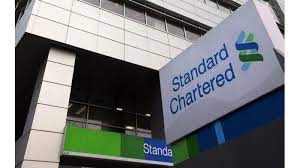Banking Consolidation Accelerates in Kampala
Standard Chartered sells Ugandan retail arm to Absa in strategic refocus; consolidation deepens as sector eyes digital scale and regional FX integration. (ABG.JO, UGSE)

Standard Chartered Bank has agreed to sell its Ugandan retail and wealth-management operations to Absa Group, marking a decisive restructuring of one of the country’s oldest international lenders. The transaction, pending central-bank approval, will transfer roughly 20 branches, 200,000 customer accounts, and US $250 million in retail assets to Absa while Standard Chartered retains its corporate and institutional banking portfolio.
The sale aligns with Standard Chartered’s continent-wide strategy to exit low-scale consumer markets in favour of trade finance, cross-border payments, and corporate lending where margins and capital efficiency are higher. Similar exits in Zimbabwe, Sierra Leone, and Lebanon illustrate the group’s capital-optimisation drive following tighter Basel III leverage rules. For Absa, the acquisition expands its East African footprint and adds a diversified deposit base that can lower average funding costs by as much as 70 basis points over two years.
Uganda’s banking sector is now entering a consolidation phase. Thirty-four licensed banks serve a population of 48 million, but just six institutions control over 70 percent of total assets. Mergers and acquisitions are expected to accelerate as rising compliance costs and digital-investment needs strain mid-tier lenders. The Bank of Uganda has endorsed the deal in principle, noting it supports its financial-stability roadmap, though final approvals hinge on satisfactory capital and governance reviews.
The market implications extend beyond balance sheets. Absa’s integration brings renewed competition in digital channels, mortgages, and SME lending. Its regional treasury platform will likely deepen local-bond participation, improving liquidity for sovereign and corporate issuers. Meanwhile, Standard Chartered’s pivot toward transaction banking aligns with the African Continental Free Trade Area’s expanding intra-African payment framework, where cross-border settlement volumes are projected to exceed US $35 billion annually by 2027.
Equity analysts in Nairobi and Johannesburg see the transaction as a “capital reallocation, not retreat.” With Absa trading near 0.9 × book and strong capital adequacy ratios, it can absorb the Ugandan franchise without impairing dividends. The move also reflects investor appetite for stable markets: Uganda’s non-performing-loan ratio at 3.8 percent and inflation below 5 percent make it one of the region’s more predictable banking jurisdictions.
Looking ahead, success will depend on customer retention and technology migration. A seamless handover could set a benchmark for future cross-border acquisitions across Africa’s fragmented banking space, reinforcing the continent’s slow but steady integration of capital and retail networks.





